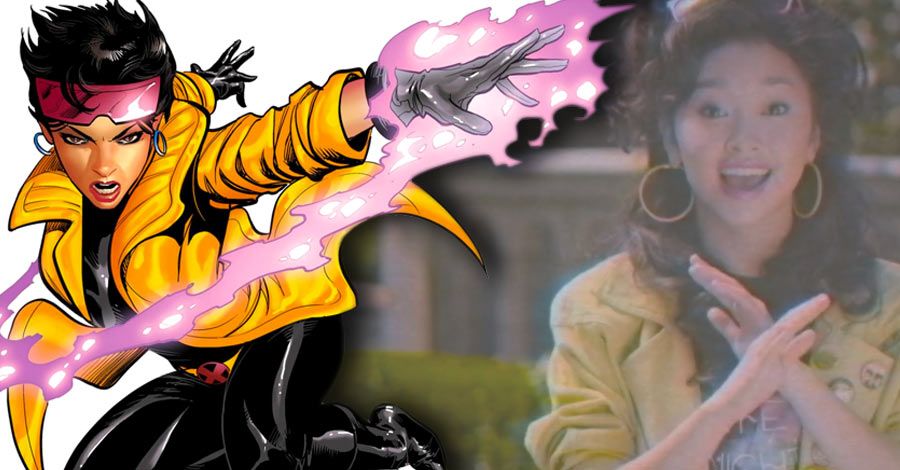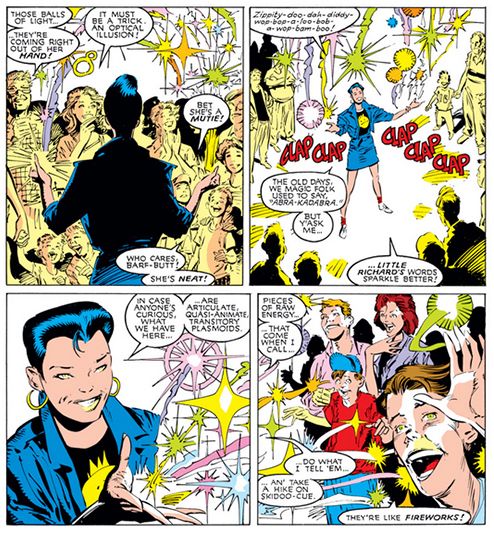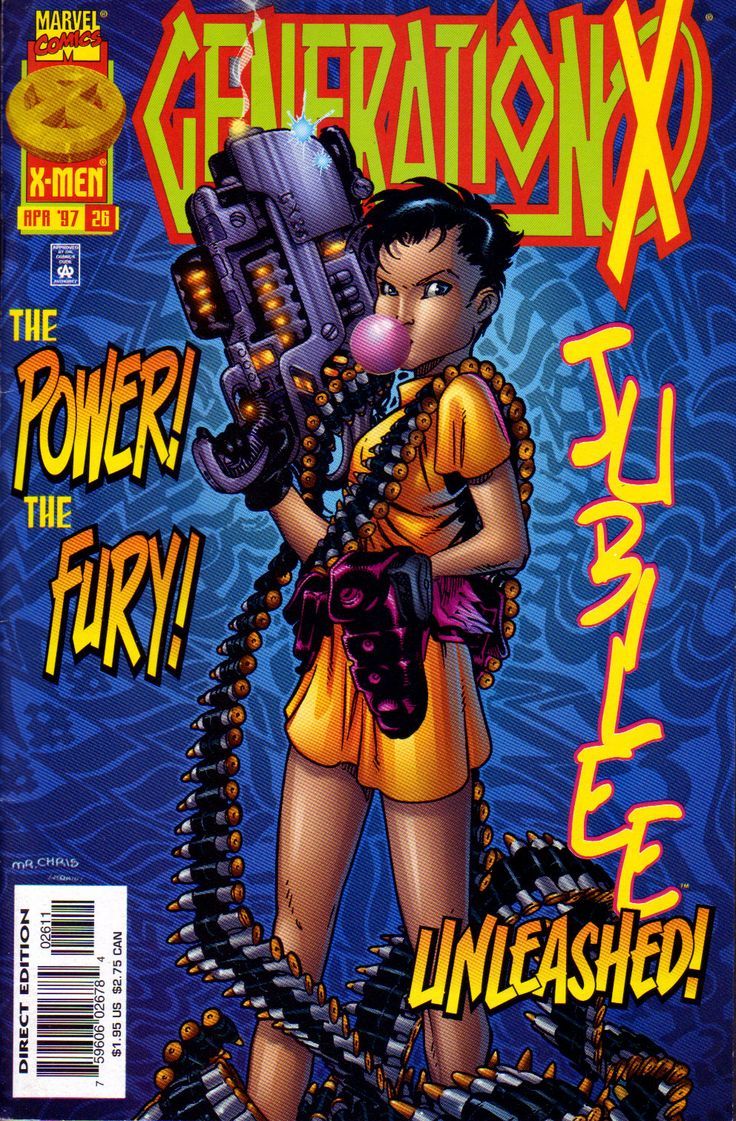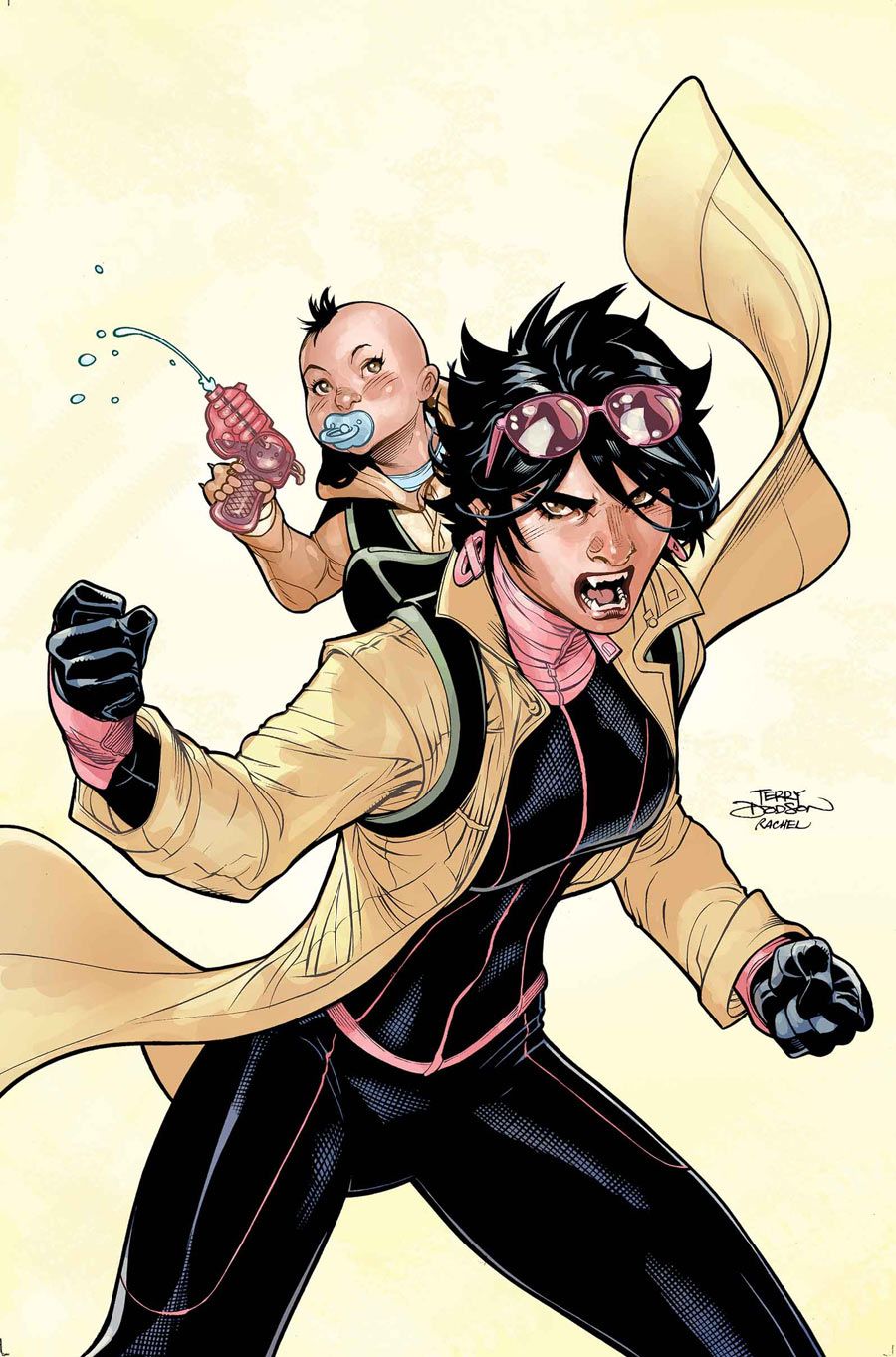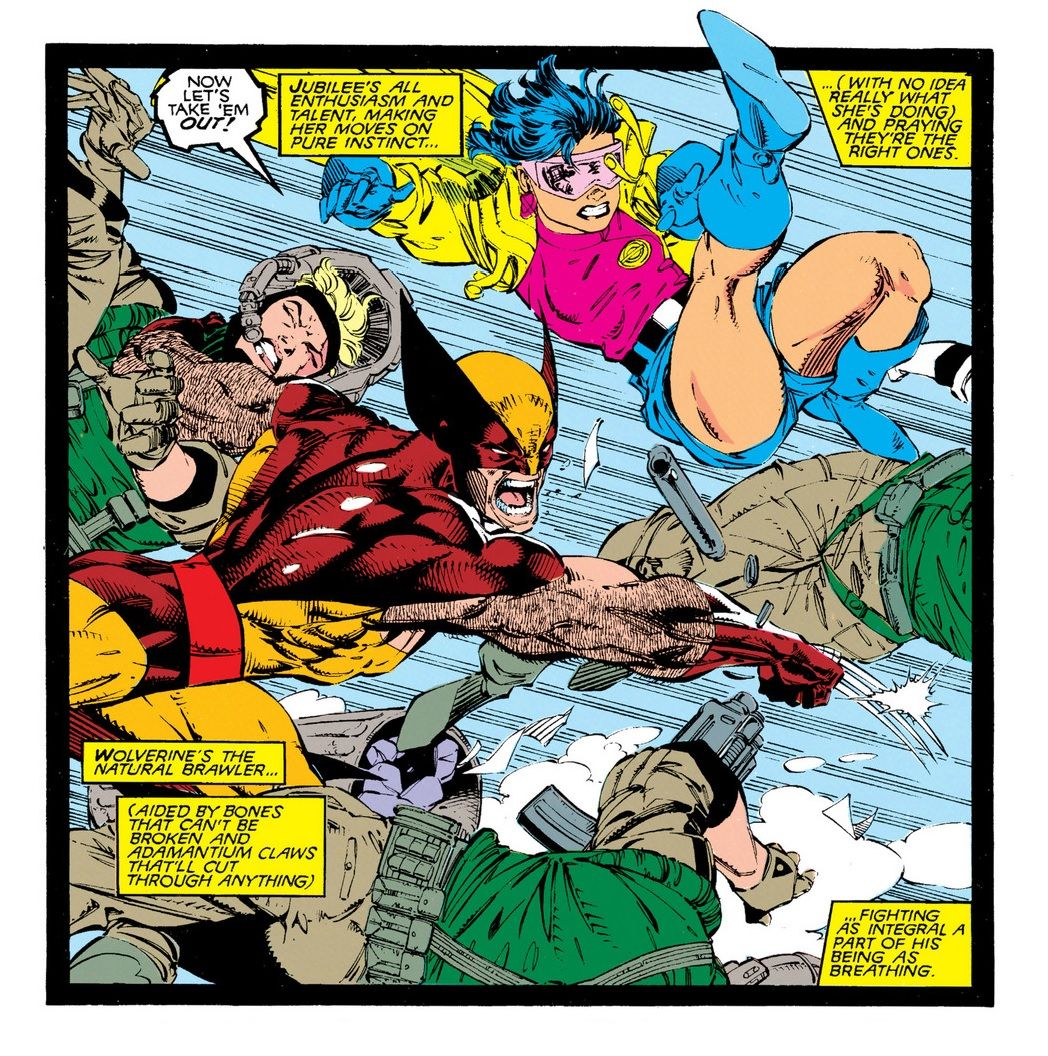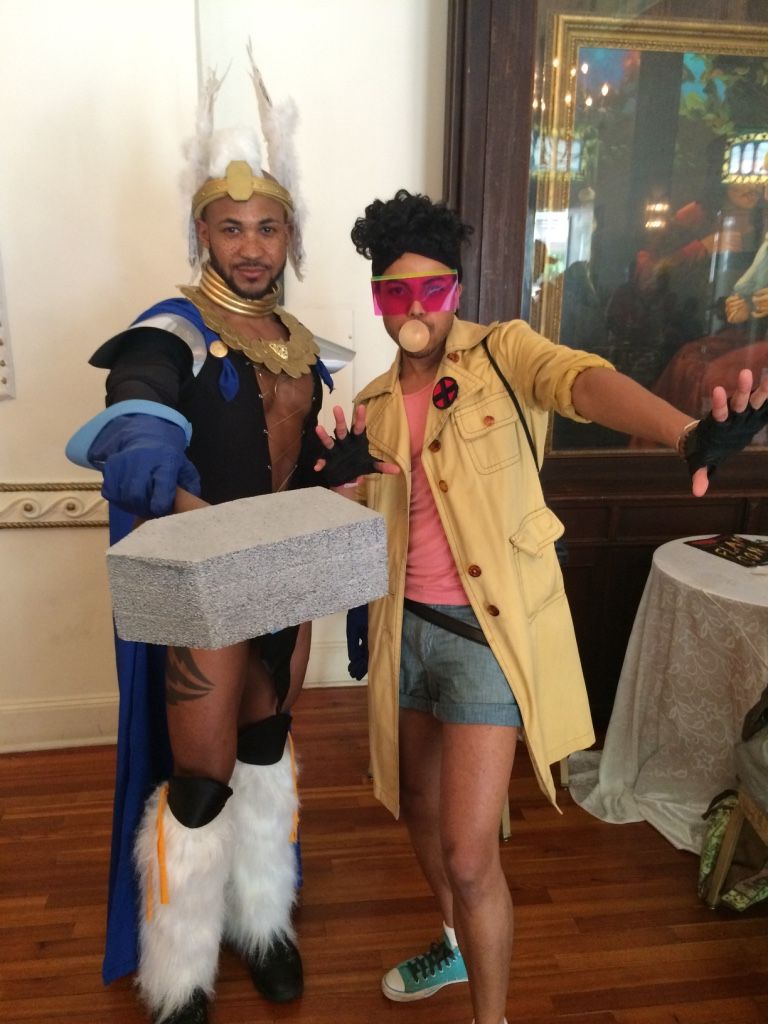There was one major problem with "X-Men: Apocalypse." Okay, one major problem and a lot of little ones -- although no one will be able to convince me that the film is close to being as bad as the stinkiest stinkers in Fox's X-Franchise. It was a fine movie, one I enjoyed watching, and its biggest sin was being just... sorta average. Whereas "Deadpool" reveled in hedonistic madcap mayhem, "Batman v Superman: Dawn of Justice" took a hard stance on the grim and gritty side of superheroics and "Captain America: Civil War" took Marvel into emotionally resonant family drama territory, "X-Men: Apocalypse" was just kinda there, doing its own X-Men thing. Fixing this one major problem could have taken the film in a new direction.
"X-Men: Apocalypse" needed more Jubilee.
And you know what, everything needs more Jubilee. Sections of X-Men fans rightly freaked out when they learned that Jubilee would appear in the '80s-set X-Men film. I was ecstatic when I saw the first set pics of Lana Condor as Jubilee hanging out in a painstakingly recreated '80s mall. This is what the X-Men films have needed. The X-Men aren't just oppression and angst; they're also baseball games and chili fries, trashed arcade cabinets and kitchen disasters. Aside from a montage or two and maybe a scene in "X-Men: First Class," the films -- all six X-Men team films -- have focused on angst and angst only. The arrival of Jubilee and a trip to the mall sounded so good.
RELATED: 5 Major Tips for the "X-Men" Movie Franchise Post-"Apocalypse"
And then it was all cut. Nightcrawler breakdancing? Cut. Jubilee using her powers? Cut. Record-store shopping? Cut. And with the mall sequence goes 99% of Jubilee's screentime. While the mall sequence wouldn't have righted a lot of "Apocalypse's" wrongs, it would have at least given fans something new and just as vital in the X-Men comics as mutant persecution: fun.
This all speaks to my larger point, and "Apocalypse" was just the catalyst that sparked my realization. Jubilee should be one of the most important and prominent superheroes, and the fact that she's so often forgotten, derided and dismissed makes pop culture a sadder place. Yeah, y'all, Jubilee is a wildly important character.
Jubilee isn't even one of my favorite characters. She's not a personal fave that I'm constantly cheerleading for, and it took me a long time to realize just how absent she's been from everything for the past 15 years. I never realized how massive of a character the firecracker should be until she was teased and then cut out of "X-Men: Apocalypse." You don't know what you've got until it's been ripped out of a movie.
Co-created by Chris Claremont and Marc Silvestri, Jubilee debuted in 1989's "Uncanny X-Men" #244. She debuted as an orphan using her fireworks powers to do Tiffany-style mall performances. She then stowed away in one of the X-Men's teleportation portals and hid out in their Australian HQ (stealing their clothes) until Wolverine, crucified and left for dead by the Reavers, needed her help. After taking care of Logan, she became his de facto sidekick, started wearing a sick yellow trench coat and, following in Kitty Pryde's footsteps, became the second in a long line of spunky teenage girl X-Men.
Jubilee got the most exposure when, just three years after her debut, she acted as the entry point character in Fox's "X-Men" cartoon. So many lines of hers from that debut two-parter still stick with me, most likely thanks to Alyson Court's charmingly snarky voice work. "Does a mall babe eat chili fries?" "Yeah, a quarter." "I hope he doesn't see me, I hope he doesn't see me." No, they're not all winners, but they're intrinsically tied to the X-Men in my brain. Jubilee's heyday with the X-Men lasted until late 1994, when she was enrolled in "Generation X" along with a new crop of teen mutants. It would be the beginning of her gradual slide into the background.
"Generation X" was canceled with 2001's issue #75, and Jubilee hasn't been the same since. She got a six-issue series -- written by Robert Kirkman (?!) BTW -- in 2004, but lost her powers in the fallout of 2005's "House of M." Jubilee's infrequent appearances were also filled with inconsistencies as writers tried to do anything with the character; she was a human New Warrior for a while, then she was turned into a vampire (yep) and now she's legally adopted a baby boy named Shogo. She's come a long way in the 15 years since "Generation X" ended, but mostly by way of sporadic appearances and people trying to do literally anything to "fix" a character that wasn't broken.
Breaking the character down to her core components, the traits that have somehow remained consistent despite wildly inconsistent appearances, Jubilee is amazing. First, her personality stands in such stark contrast to so many other heroes -- specifically female heroes. And I point out her gender because it's important; Jubilee represents an underrepresented type of female hero, which could and should make her a point of identification for tons of readers -- if only she'd get more attention. She's the kind of rebellious, unconcerned with romance, fiercely individual teen girl we don't get to see enough. On top of all that, she's also a female character that has somehow avoided being overly sexualized; it varies from artist to artist, but Jubilee has never suffered the same degrading problems that pretty much every other female hero has. She's never had a costume with a boob window.
Jubilee has an attitude. She's not regal and intimidating like Storm, she's not exactly sassy like Rogue; the closest comparison I can see is Ryan North and Erica Henderson's current take on Squirrel Girl -- but Jubilee has an edge. Jubilee's the kinda girl that hides her insecurities with a thick pair of neon shades and breaks up the quiet with popping bubble gum. She keeps people at arm's length because that's the cool thing to do, but she forms unbreakable bonds with her teammates anyway. She brags about every awesome thing she's ever done because fighting aliens is a crazy thing to do and why wouldn't you remind everyone of that every day?! She's never met an authority figure she wouldn't chuck a sparkler at, but she also has a nurturing side (that only comes out if you're A. on your death bed or B. her adopted son). Basically, Jubilee is way more nuanced than anyone gives her credit for.
Jubilee also benefits from an admittedly weird but totally classic Jim Lee character design. Jubes initially sported a hodgepodge costume she threw together after raiding the X-Men's closets, and her classic trench coat/shorts/boots/gloves look didn't debut until "Uncanny" #257. And yeah, her initial superhero look was patterned after Batman's sidekick Robin: yellow coat, green shorts, red top. The influence was obvious -- but it changed with "Uncanny" #271. With that issue, colorist Glynis Wein did something that made Jubilee's look become -- yeah, I'll use the word -- iconic.
In that issue from 1990, Wein changed Jubilee's shirt from red to pink and her shorts from green to blue. With a yellow/pink/blue palette unlike anything worn by any other hero at the time, Jubilee finally looked like Jubilee. That's the color combo she wore in the '90s cartoon, and it's the color combo that's most often associated with her. The new color scheme also fits Jubilee's personality. It's bright, it clashes, it's fun, and it takes confidence to pull off. The street wear nature of her look makes her one of the least intimidating heroes to cosplay; anyone can look as rad as Jubilee, most likely with things already in their own closet. Just look at Lana Condor's costume in "X-Men: Apocalypse" to see how easy it is to convey Jubilee's whole 'tude without doing a total 1:1 match. Despite her diminished profile over the past decade, you still see quite a few Jubilees at conventions. Just imagine how many there'd be if she actually got more exposure!
And while her powers have fluctuated wildly over the past decade, Jubilee also has -- or rather had -- a simple to understand and visually interesting mutant ability. Original abilities are actually hard to come by. Just look at the Marvel movies: how many super strong people or suits-with-powers people are there? And what's up with Scarlet Witch's abilities? And like, how do artists really draw things like telekinesis or telepathy? Jubilee shoots fireworks. They look like fireworks. Who else does that? And also, fireworks are dangerous. Before you laugh at her power, scroll through the Google image results for "fireworks accident." It's gross.
Lastly, Jubilee is important because she exists at the representation crossroads for a lot of different underrepresented groups. In addition to being a teen girl character that's a lovable quippy brat, she's also one of the few prominent Asian American superheroes -- a fact that did not go unnoticed by a whole generation of '90s kids that got to see a superhero that looked like them on Saturday morning TV. And this is why it would have been great to see her take a larger role in "Apocalypse." A whole new generation of fans have grown up not watching that '90s cartoon, and this movie could have been their introduction to Jubilee -- and we didn't really get that. In a year filled with "Ghost in the Shell" and "Doctor Strange" whitewashing controversies, we really needed Jubilee on screen, being awesome.
And I'll even play my gay card for a second and say that, while Jubilee isn't canonically queer in the main Marvel Universe, she's also become a point of representation for the gay community. Maybe it's her penchant for sass and catch phrases, or the fact that she's an orphan that made a home with a found family, or the fact that her superpower is sparkly fireworks? Maybe it's because she adopted a child? She's also a bit of a gender rebel, dressing like a tomboy but rocking neon pink at the same time. There's definitely a real case to be made for Jubilee being asexual, as she's rarely -- possibly never? -- been depicted as in a serious relationship. Jubilee's interests just lie elsewhere -- usually in being awesome solo.
All of this is why Jubilee matters. It is so hard to build up new heroes. Since the majority of A-List heroes (Superman, Batman, Wonder Woman, Spider-Man, Wolverine, Captain America, Iron Man, etc.) are all White, non-White heroes are almost always newer heroes and they seemingly have to fight twice as hard to not get replaced or forgotten. Jubilee is not new. Jubilee has been around for 25 years. She has the name recognition, she has the history, and there are runs of good comics dating back decades that new readers can discover. Marvel Studios elevated Falcon and Black Panther -- two once lesser-known black heroes with extensive comic histories -- to mainstream status by giving them a lead role in movies. Considering that there are so far few live-action Asian American superheroes at either Marvel or DC, Jubilee could have changed everything.
Jubilee is a solid character, one that does not get nearly enough credit for having a unique personality, look and power. Even the current young adult/vampire/adoptive parent angle would make for a fascinating series lead. She also represents members of the population that just don't see themselves in comics; if you're a woman, not white or queer, odds are there's something about Jubilee that you will respond positively to. And with 25 years of history and names like "Chris Claremont" and "Jim Lee" in her history, she even has legit comic-character-cred on the level of pretty much every single superhero in a movie right now. She's relatable and cosplayable and there's no one else like her. She's Jubilee, and she's important.
And it's time for Marvel, Fox and everyone else to start treating her that way, dude.
Brett White is a writer and comedian living in New York City. He made videos for the Upright Citizens Brigade as a member of UCB1 and writes for the podcast Left Handed Radio. His opinions can be consumed in bite-sized morsels on Twitter (@brettwhite).

